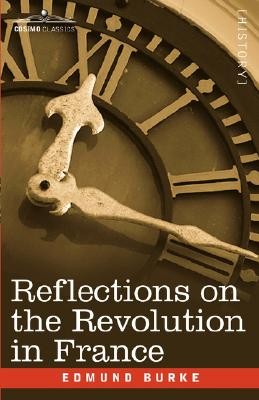
- We will send in 10–14 business days.
- Author: Edmund Burke
- Publisher: Cosimo Classics
- ISBN-10: 1605200913
- ISBN-13: 9781605200910
- Format: 14 x 21.6 x 1.5 cm, minkšti viršeliai
- Language: English
- SAVE -10% with code: EXTRA
Reviews
Description
Reflections on the Revolution in France is the most famous and popular work of Irish political writer and statesman EDMUND BURKE (1729-1797), whose 12-volume set of collected works has long been considered one of the most influential anthologies of political philosophy in the English language. Reflections, included in Volume III of that set, is significant enough to warrant its own separate publication here. Although Burke supported many liberal movements, such as the right of self-rule of the American colonies and of Ireland, he did not support the French Revolution: he believed the uprising was based on faulty notions that did not properly account for the pitfalls of human nature, and this, he predicted, would lead the revolutionaries to disaster. And indeed, the Revolution did lead to the Reign of Terror and eventually Napoleon Bonaparte. Students of history and philosophy will find Burke's arguments as provocative as his contemporaries did.
EXTRA 10 % discount with code: EXTRA
The promotion ends in 22d.05:26:53
The discount code is valid when purchasing from 10 €. Discounts do not stack.
- Author: Edmund Burke
- Publisher: Cosimo Classics
- ISBN-10: 1605200913
- ISBN-13: 9781605200910
- Format: 14 x 21.6 x 1.5 cm, minkšti viršeliai
- Language: English English
Reflections on the Revolution in France is the most famous and popular work of Irish political writer and statesman EDMUND BURKE (1729-1797), whose 12-volume set of collected works has long been considered one of the most influential anthologies of political philosophy in the English language. Reflections, included in Volume III of that set, is significant enough to warrant its own separate publication here. Although Burke supported many liberal movements, such as the right of self-rule of the American colonies and of Ireland, he did not support the French Revolution: he believed the uprising was based on faulty notions that did not properly account for the pitfalls of human nature, and this, he predicted, would lead the revolutionaries to disaster. And indeed, the Revolution did lead to the Reign of Terror and eventually Napoleon Bonaparte. Students of history and philosophy will find Burke's arguments as provocative as his contemporaries did.


Reviews